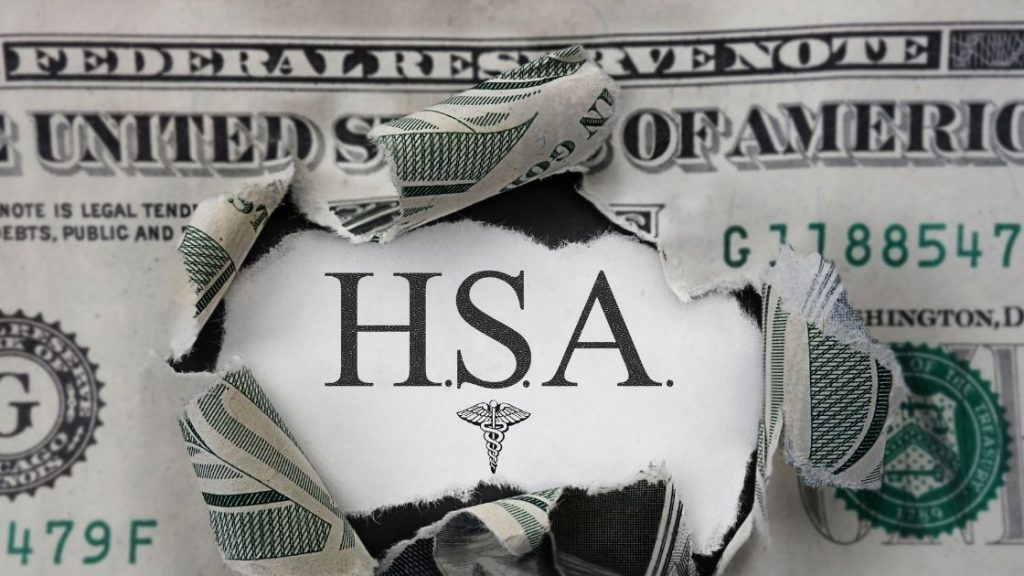You have probably heard of HSAs by now, right? If not, I want to let you know right from the outset that these tax-advantaged accounts are amazing and are among my favorite savings and investment vehicles.
Health Savings Accounts (HSAs) have been growing in popularity since their introduction in 2003. According to a 2018 study by SHRM (a leading HR management society), 56% of employers were offering HSAs at the time, with the trend pointing toward greater adoption going forward.
Money going into HSAs is on the rise as well. Morningstar reports that total assets at the four largest HSA providers (which reflect over half of the industry’s assets) have more than doubled since 2017.
Based on this, chances are good that your employer offers an HSA or will soon make it available.
Wondering if an HSA is right for you? That is the question.
We’ll get into the pros and cons of the HSA to help you answer that question. But first, let’s give the HSA a proper introduction.
This post may contain affiliate links. If you click on a link and complete a transaction, I may make a small commission at no extra cost to you.
What is an HSA?
An HSA is a tax-advantaged savings account that allows you to contribute funds that can then be used to pay for “qualified medical expenses.“ These expenses include prescription drugs, most over-the-counter medications, and medical services.
HSAs are offered as part of a High Deductible Health Plan (HDHP). An HDHP works like a traditional health insurance plan but has a higher deductible. This means that your out-of-pocket costs for medical expenses will be higher than they would be in a traditional health plan.
To offset some of that cost, HDHPs generally have lower premiums. Source: healthinsurance.org
The HDHP and HSA have important limitations that you should know. There are caps on how much you can contribute to your HSA, minimum deductible amounts that apply to HDHPs, and maximum out of pocket costs (deductibles, co-payments, and other amounts, but not premiums) that your HDHP cannot exceed before coverage begins.
This table shows the limits in each of these categories for 2020 and 2021.
The IRS also has eligibility requirements for participating in an HSA. They are as follows:
· You must be covered under an HDHP
· You must have no other health coverage
· You must not be enrolled in Medicare
· You must not be claimed as a dependent on someone else’s 2020 tax return
Now that you have been introduced to the HSA and understand some of its key features and limitations, let’s discuss how to set one up.
How Do You Set Up an HSA?
Setting up an HSA is simple. You select the HDHP as your health plan during open enrollment and select how much you want to contribute to the HSA.
You may need to separately open up an HSA Account at your preferred provider (although some employers will set up an HSA Account for you).
If you don’t like the account that your employer set up, you can transfer to another HSA account. This article by hsareportcard describes the steps to do that.
There are two types of HSA accounts: A cash account and an investment account.
Most HSAs default to a cash account. But if you want to invest in stocks, bonds, and other securities through your HSA, you must set up an investment account.
Opening up an HSA investment account is straightforward. Simply find an HSA provider (we cover this in the next section) that offers investment accounts and follow their account opening process.
Most providers have minimums (usually $1,000 to $2,000) that you must keep in your cash account before you can deposit anything into your investment account.
Who Are the Major HSA Providers?
There are a handful of large providers operating in the HSA space. They include well-known brokerage houses like Vanguard, Fidelity, and TD Ameritrade, but also lesser-known companies that specialize in this area, such as Lively, HSA Bank, and Health Savings Administrators.
If you are a do-it-yourselfer, you can look into these providers and compare them on various features, like fees, interest rates, investment options, minimum balance requirements, etc.
But an easier solution might be to read Morningstar’s research on this. They analyzed 11 of the largest or most popular HSA providers and graded them on various categories. Fidelity ranked well in several categories, so that might be a good place to start.
How Do HSAs Differ From FSAs?
You may have heard of another type of tax-advantaged account that can be used to pay for qualified medical expenses. Of course, we’re talking about the Flexible Spending Account (FSA).
Like the HSA, an FSA allows you to contribute money into a tax-advantaged account and use it to pay for qualified medical expenses. But there are some notable differences between the two.
The biggest difference is that an HSA must be tied to an HDHP, while an FSA may be used with a traditional health plan. A second important difference is that an HSA allows you to roll over any unused funds from year to year. An FSA typically does not. If you have any unused funds in your FSA at the end of the year, you will forfeit them (with some exceptions).
There are other significant differences between the two accounts and we have summarized the key differences in the comparison table below.
|
Health Savings Account |
Flexible Spending Account |
|
Must be used with an HDHP |
May be used with traditional health plans |
|
Unused funds may be rolled over year to year |
Unused funds are generally forfeited |
|
HSA funds may be invested |
FSA funds may not be invested |
|
Contribution Limits for 2021 are $3,600 per individual and $7,200 per household |
Contribution Limit for 2021 is $2750 per individual |
|
May change contributions at any time |
Contributions may not be changed, except during open enrollment or if there is a qualifying life change |
|
May be available to self-employed business owners |
Only available through your employer |
|
Portable |
Usually can’t be carried over to a new employer |
Choosing which account is better for you is going to depend on a lot of factors.
Generally speaking, if you are young and have low health care costs, an HSA may make more sense. First, your premiums will be lower in an HDHP. More importantly, the high deductible will not matter because you will have few medical expenses.
But if you are older or your healthcare costs are high, the FSA may be a smarter choice.
What Are the Benefits of Using an HSA?

HSAs have several attractive features:
1. Triple Tax Advantage
2. Employer Match
3. Unused Funds May Rollover
4. Portability
5. Flexibility
Triple Tax Advantage
The most prominent benefit of the HSA is its triple tax advantage.
The first advantage is that your contributions are made with “pre-tax” dollars.
This means that your HSA contributions are made with money that hasn’t been taxed. Pre-tax contributions are deducted from your gross income, which lowers your taxable income. Ultimately, this leads to lower taxes for you.
You can take advantage of this tax benefit even if you don’t itemize your taxes. Source: IRS
HSA contributions may also receive favorable state income tax treatment, subject to a few exceptions. Source: Lively
The second advantage is that your HSA grows tax-free. This includes growth from interest payments, dividends, and capital gains.
The third advantage is that your withdrawals are tax-free if used for qualified medical expenses.
It’s a potent combination and unmatched by any other tax-advantaged vehicle.
Employer Match
Some employers offer a match on HSA contributions. These matches vary by employer, but are often based on a percentage of the employee’s contribution up to a cap (e.g., 50% match up to $600).
Like employer contributions to your 401(k), these matches are essentially free money and the IRS has confirmed that it will not tax them.
One important clarification: According to the IRS, the sum of your employer match and your contribution must not exceed your total HSA contribution limit for the year.
Unused Funds May Rollover
As mentioned before, you can roll over unused funds in your HSA. Not only does this protect against forfeiture it allows you to accumulate and invest balances in your HSA year over year. If you invest those funds in assets that generate strong returns, your HSA account can grow dramatically over time.
Portability
Unlike an FSA, the HSA is not tied to your employer. The IRS has stated that it is portable and you can take it with you when you leave your job. In fact, even if you change your insurance and no longer participate in an HDHP, the funds in your HSA account will remain yours.
Flexibility
HSAs are flexible accounts. They allow users to invest in a broad range of assets and permit spending on a wide variety of items. Although most people think you can only use your HSA for medical expenses, that is not necessarily true as you will find out below.
Investing Flexibility
HSAs are extremely flexible when it comes to investing your funds.
If you open up your HSA investment account at a large brokerage firm like Fidelity, you will have access to funds that they have developed for HSAs, but you also get access to their entire brokerage line-up, which includes stocks, bonds, mutual funds, ETFs, Treasuries, and options.
If you want even more investment options, you can use your HSA to purchase alternative assets such as real estate, precious metals, and more.
This can be done through a self directed HSA. To learn more about self-directed HSAs and how to use them for real estate investing, check out my full write up on this topic.
Helpful Tip: You can use your HSA as a retirement account. A little known, but highly effective, wealth building strategy is to let assets in your HSA grow and not withdraw from them until age 65.
You can have a huge reserve of money that you can draw on in retirement completely tax-free is you use them for qualified medical expenses. You also can use that money penalty-free for any reason. We go into that in more detail below.
Spending Flexibility
HSAs also offer flexibility in how you can spend HSA funds.
This is especially true after age 65. According to the IRS, at age 65, you can withdraw funds from your HSA without penalty for any reason.
You still have to pay taxes on those withdrawals, but you can spend the money on anything.
In other words, after 65, your HSA works just like a traditional 401k or traditional IRA (perhaps better because HSAs do not have required minimum distributions).
This is a remarkable feature of the HSA that most people do not appreciate.
But even before age 65, you have more flexibility than you might think, thanks to the breadth of qualified medical expenses.
Here is Cigna’s list of reimbursable expenses under the HSA. As expected, prescriptions, doctor visits, hospitalization costs, and other expenses related to medical services are covered. But you also find a long list of over-the-counter items that people buy every day.
They include pain relievers, acne products, allergy products, feminine hygiene products, antacid remedies, antibiotic creams/ointments, antifungal foot sprays/creams, baby care products, cold remedies, (including shower vapor tabs), cough syrups and drops, stomach remedies, sleep aids, and much more.
That’s a pretty broad list and it showcases how flexible your HSA can be.

What Are the Drawbacks of Using an HSA?
When deciding whether an HSA is right for you, there are some disadvantages you should consider.
You Must Have An HDHP
The biggest drawback of an HSA is that it is tied to an HDHP. The high deductible can be painful if you have a large medical expense that comes up. You may need to deplete your HSA to cover it (or even go out-of-pocket if you don’t have enough in your HSA).
As mentioned before, if you expect to have high medical costs during the year, an HSA might not be the right choice for you.
Contributing to an HSA May Create Cash Flow Issues
Contributing to an HSA and paying premiums for your HDHP may increase your total expenses when compared to paying premiums for a traditional health plan.
If your budget is already tight, adding in the extra cost of an HSA contribution may not work.
High Deductible May Discourage You From Seeking Needed Medical Care
You may be tempted to ignore a medical issue because of the HDHP’s high deductible. This can severely impact your health if the medical issue you ignore is serious.
Must Comply With IRS Rules
There are many IRS rules that apply to HSAs. The most obvious one is using HSA funds only for qualified medical expenses. If you violate this rule, then you will be taxed and charged a 20% penalty on those withdrawals.
If you have any doubt about an expense, you should confirm with your tax advisor that it is a qualified medical expense before you charge it to your HSA or submit it for reimbursement.
The IRS also recommends that you keep records sufficient to show that:
· The distributions were exclusively to pay or reimburse qualified medical expenses,
· The qualified medical expenses hadn’t been previously paid or reimbursed from another source, and
· The medical expenses hadn’t been taken as an itemized deduction in any year
A more serious violation occurs if you overdraw your HSA account. The IRS will view that as a prohibited transaction.” That will cause your HSA to lose its tax-advantaged status as of the first day of the year in which the prohibited transaction occurred, which could lead to significant tax liability.
While we’re on the topic of taxes, let’s cover a few details that you may find helpful come tax season.
Tax Filing
You must report all HSA contributions on Form 8889 and file the completed form with your tax return. The filing deadline is April 15, 2021, for HSA contributions in 2020. As mentioned previously, you do not need to itemize your HSA contributions to get preferential tax treatment on your contributions. Simply attaching Form 8889 to your return is enough.
For more information on Form 8889 and the tax filing process, consult the IRS rules on this topic here.
You may also receive a Form 1099-SA from your HSA custodian if you withdrew funds from your HSA. According to the IRS, you will also need to file this form to report your distributions for the year.
As with any tax-related matter, consult your tax advisor to make sure you are correctly addressing all tax issues.
Conclusion
HSAs offer attractive tax advantages and a host of other benefits that may be appealing to you, but you should carefully consider its drawbacks as well, including its high deductible and complicated tax requirements.
For more information on HSAs, please check out my other articles on the topic, including tips of how to maximize the benefits of your HSA and how to use your HSA to invest in real estate.

